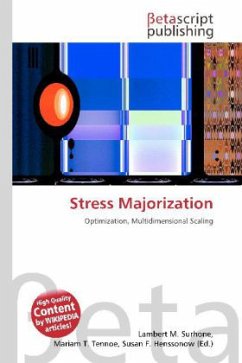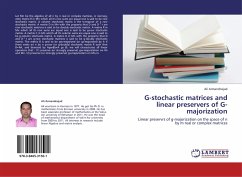Please note that the content of this book primarily consists of articles available from Wikipedia or other free sources online. Stress majorization is an optimization strategy used in multidimensional scaling (MDS) where, for a set of n, m-dimensional data items, a configuration X of n points in r(m)-dimensional space is sought that minimises the so called stress function (X). Usually r is 2 or 3, i.e. the rtimes n matrix X lists points in 2- or 3-dimensional Euclidean space so that the result may be visualised (i.e. an MDS plot). The function is a loss or cost function that measures the squared differences between ideal (m-dimensional) distances and actual distances in r-dimensional space. It is defined as: sigma(X)=sum_{ijle n}w_{ij}(d_{ij}(X)-delta_{ij})^2 where w_{ij}ge 0 is a weight for the measurement between a pair of points (i,j), dij(X) is the euclidean distance between i and j and ij is the ideal distance between the points (their separation) in the m-dimensional data space.







